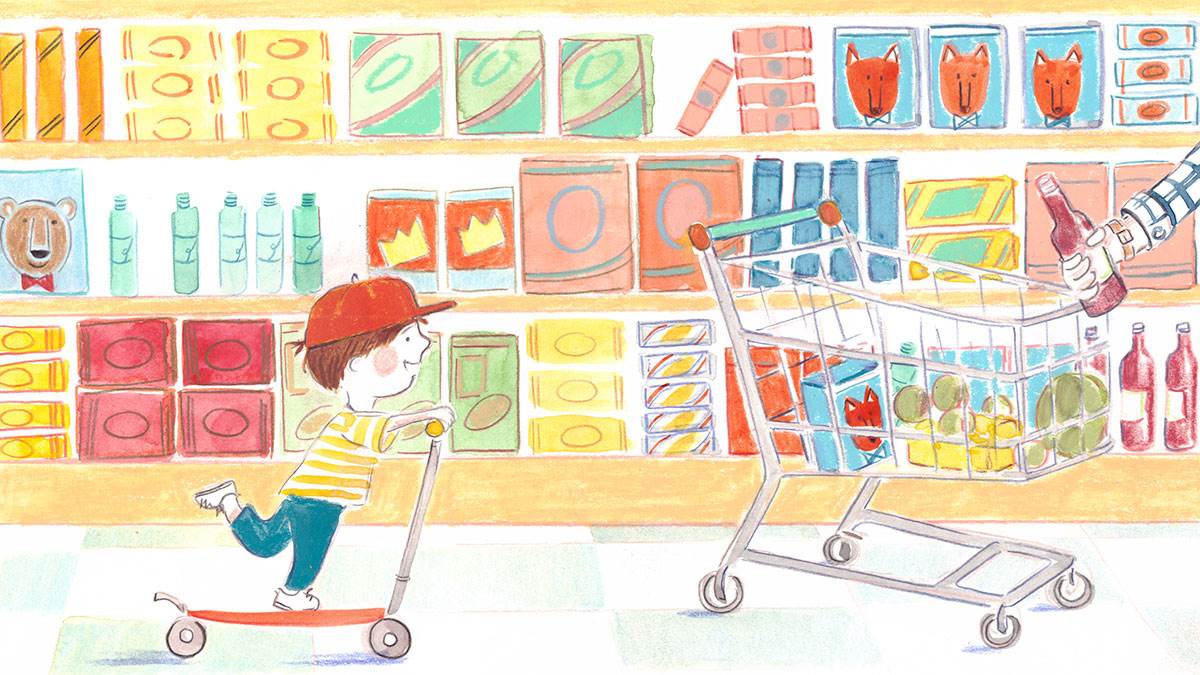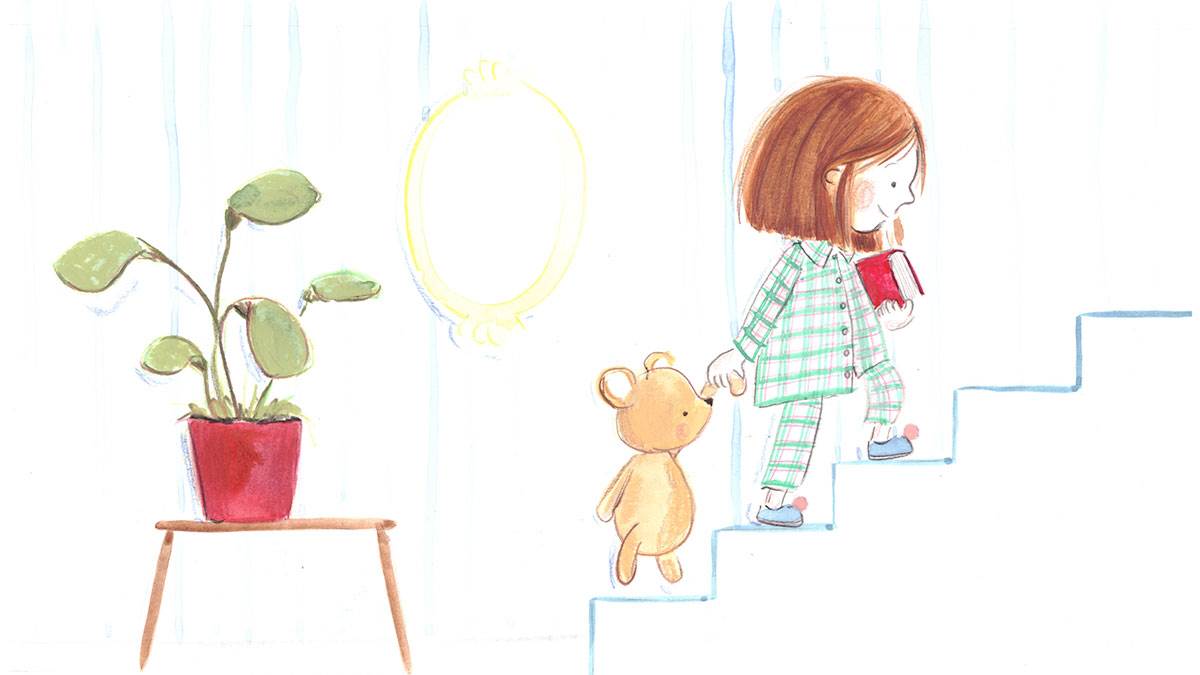ADHD and autism: How books are supporting one mum and her son
Published on: 12 October 2022
For one mum, books are vital for supporting her four-year-old son Finley, who is on the spectrum for autism and ADHD. She shares the role books and stories play in their day-to-day life.

Illustration: Fiona Lumbers
Stories for self-expression
“For children or young adults with additional needs reading may be the only way they can express their feelings. Sometimes Finley can’t tell me how he’s feeling, so he brings me a book to show me.
“If he's tired, he gets me his bedtime book. If he's bored, he'll get me a book that's got a lot of activity in it so that we can act out and play. If he’s feeling sad, sometimes he'll just bring me a book and say he’ll want a cuddle. Books are how children can express the things they need.
Using books to soothe and reassure
“There's not a room in our house that doesn’t have books in it.There are books in his bedroom for when Finley decides he wants to spend the day in there.
“We have books in the bathroom because he gets nervous and scared in there, so we have books in there that he can look at to help him relax.
“We have recipe books that we look through in the kitchen when we bake together and we have books in the front room. There are literally books everywhere!
The encouragement to try new things
“We started acting out the dinosaur stomp together because Finley really liked this book called 1,2,3 Do The Dinosaur – where the characters stomp, dance and do lots of different actions, like chomping.
“Finley is really wary about food, he doesn’t like certain textures. As it’s one of his favourite books, we’ll bring it to tea time and say: 'Ok, let’s do the dinosaur chomp. Let’s see who can eat the quietest and the quickest, and let’s see what new foods the dinosaurs can have.' It makes him want to try new things, and it helps us learn what he likes and what he doesn’t.

Illustration: Fiona Lumbers
Finding sanctuary in reading
“I purchased a tent that you can use indoors or outdoors. If Finley's feeling a bit worked up, we get loads of cushions, blankets and munchies, and we'll just go in there with a load of books.
“If we go to the park, sometimes we'll pack up the tent and we'll take it with us, so Finley gets that space to himself wherever we are. If it gets too much for him with loads of children, he can go in his tent and read. It’s easy to carry and it folds down really well.
“Finley gets to pick one day a week when we'll go to the library. When we get home, we have lunch in the tent and we look at the books we’ve borrowed. We sometimes have tea parties in there and we just read all our library books.
Nurturing their imagination
“With children with additional needs, sometimes the way forward is through books. It’s about knowing what help you can gain from books, and what books will help where.
“When someone asks me: 'Why are you borrowing more books again?' It’s because I want my son to keep his imagination going. I think imagination is for everybody, and it’s important. I think books bring your imagination to life.
“When Finley takes a book and he's looking at the pictures by himself, you can hear him giggling. We've read his favourite books out loud so much, he knows the story. That to me says it all.”





